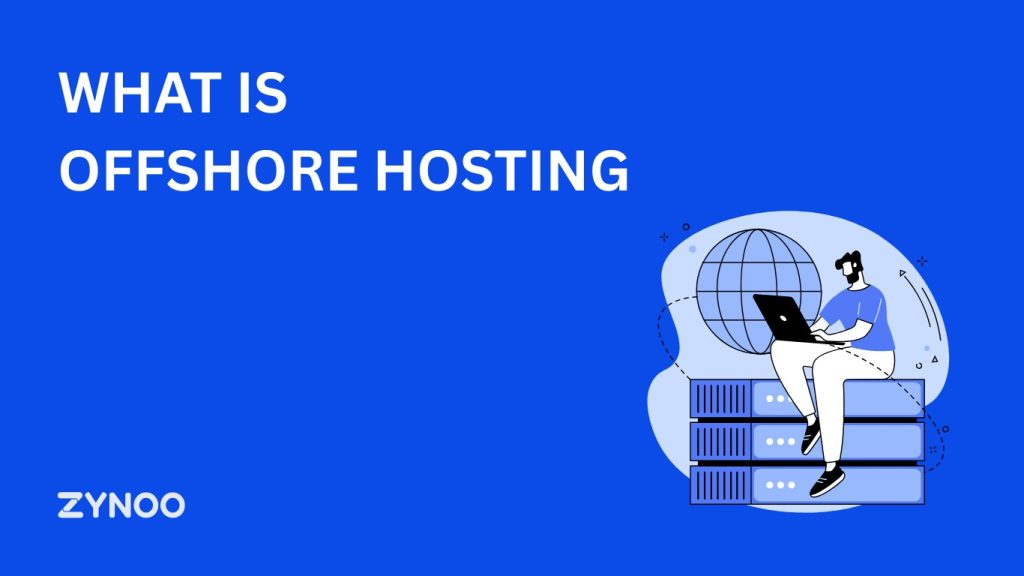In a time when data is currency and surveillance become more common, the need for online privacy has never been more important. Offshore hosting for better privacy and security is a key step in protecting digital independence in a world often marked by widespread data collection, censorship, and government overreach.
The rise of offshore hosting isn’t just a niche trend; it’s a calculated choice by individuals, organizations, and digital innovators who see the value in protecting their digital presence from prying eyes. With cyber crime increasing and geopolitical instability growing, offshore hosting provides more than just an alternative—it offers a solution based on legal independence, security, and freedom of expression.

Offshore Hosting
At its core, offshore hosting involves storing website data, files, and applications on servers located in foreign countries. This separation between the user and the host country creates a legal buffer, making it more difficult for external parties—such as governments, corporations, or hackers—to access or demand user data.
But offshore hosting is not a quick fix. It’s a strategic tool—one that needs to be implemented carefully, ethically, and with a complete understanding of its effects.
Why Offshore Hosting Matters Today
The digital landscape has moved far beyond its initial, naive promise of open and decentralized access. Today, countless websites operate under strict surveillance, and data is regularly collected, monitored, and sold. Governments worldwide enforce content take-downs, and ISPs log user activity—often sharing that information with third parties.
Offshore hosting challenges are addressed by empowering users to take back control. It enables individuals and entities to operate in jurisdictions that prioritize:
- Data protection over data retention
- Freedom of expression over compliance with censorship laws
- Digital rights over intrusive regulation
In short, offshore hosting doesn’t just relocate your data—it shifts your digital rights into a more secure area.
Decentralizing Digital Control
One major advantage of offshore hosting is the geopolitical decentralization it offers. Hosting a site in a jurisdiction that doesn’t recognize foreign data subpoenas or follow strict laws helps protect users from harsh policies and surveillance—especially in countries with tighter regulations.
By decentralizing data location, offshore hosting reduces vulnerability to:
- Government mandates to hand over encryption keys
- Arbitrary take-down notices
- Mass surveillance laws like the USA PATRIOT Act or Five Eyes agreements
This doesn’t mean legal immunity. It means legal sovereignty—the ability to choose a digital jurisdiction that matches your values.
Strengthening Data Privacy
For many, the most compelling reason to explore offshore hosting is data privacy. While domestic hosting solutions might be subject to strict data retention laws and surveillance systems, offshore options can provide zero-log environments and robust encryption standards—some even protected by constitutional privacy rights.
Critically, the protection is not only technical but also legal. Data stored offshore is often subject to local laws that explicitly prohibit unauthorized access or sharing of personal information. For journalists, activists, entrepreneurs, and researchers, this can mean the difference between safety and exposure.
Enhancing Digital Security
Beyond privacy, offshore hosting is effective in strengthening infrastructure against attacks. Reliable offshore data centers often focus on physical and digital security with:
- Encrypted file systems
- Hardened operating systems
- Advanced firewalls and DDoS mitigation
- Redundant backup systems
Although no system is entirely immune to breaches, offshore environments are less likely to be compromised by routine legal intrusion or nation-state surveillance—primarily because they operate under different priorities.
Freedom of Speech and Censorship Resistance
In many parts of the world, political speech and controversial content face censorship, takedown requests, or legal consequences. Offshore hosting can offer a safe haven for those who want to express themselves freely without fear of unfair punishment.
Hosting content in a jurisdiction with robust free speech protections provides a digital safe haven for:
- Political dissidents
- Independent media outlets
- Cultural and artistic communities
- Whistleblowers exposing corruption
This isn’t about avoiding accountability. It’s about making sure that genuine voices aren’t suppressed by overbearing governance or limited cultural norms.
Legal Autonomy and Jurisdictional Independence
The legality of offshore hosting depends on a key detail: jurisdictional sovereignty. When data is stored in a foreign country, it is governed by that country’s laws — not the laws of the user’s country.
This provides a layer of protection from:
- Extrajudicial data seizure
- Subpoenas issued without due process
- Overbroad content regulation
That said, users should stay aware of international treaties and cooperation agreements between countries, such as Mutual Legal Assistance Treaties (MLATs), which can make the legal protections offered by offshore hosting more complex.
Mitigating Risks Through Due Diligence
Despite its benefits, offshore hosting also has its risks. Jurisdictions that provide strong privacy protections might lack reliable infrastructure or operate under opaque legal systems. To reduce these risks:
- Research local data laws thoroughly
- Evaluate server uptime guarantees
- Understand dispute resolution processes
- Use secure and encrypted communication channels
Offshore hosting is not a way to evade the law. It’s a decision about which regulations apply to your digital presence—and that choice must be made carefully.
Ethical Considerations in Offshore Hosting
As powerful as offshore hosting is, it carries ethical responsibilities. While it can safeguard free speech and protect privacy, it must not be used to:
- Host malicious or harmful content
- Distribute illegal material
- Facilitate fraud, scams, or misinformation
Practicing ethical hosting not only boosts your credibility but also helps keep the offshore hosting ecosystem sustainable for those who truly rely on its protections.
Offshore Hosting and Anonymity
Many offshore hosting providers allow for anonymous sign-ups and accept cryptocurrency payments—boosting the potential for operational privacy. For individuals in high-risk situations, this ability to operate without revealing their identity is not just convenient—it can be lifesaving.
However, anonymity should never be mistaken for impunity. The aim is to safeguard legitimate privacy—not to conceal unethical actions.
The Role of Offshore Hosting in Crisis Zones
In countries experiencing war, political upheaval, or authoritarian crackdowns, offshore hosting often serves as the last bastion of free communication. It enables the continued operation of:
- Independent journalism
- Human rights platforms
- Relief coordination efforts
By allowing critical infrastructure to operate from safe, foreign jurisdictions, offshore hosting can quite literally be the backbone of resistance in the digital age.
Balancing Privacy and Performance
A common critique of offshore hosting is that it may reduce speed or performance. While latency can rise when hosting far from the target audience, this trade-off is often offset through:
- Content delivery networks (CDNs)
- Geo-redundant backups
- Edge computing strategies
In short, users can experience both privacy and performance—if the setup is handled carefully.
Offshore Hosting in the Future of Digital Sovereignty
As global data regulations tighten and AI-based surveillance increases, offshore hosting will become even more important. Future developments might include:
- Distributed hosting through blockchain technologies
- Jurisdictional transparency scoring systems
- Decentralized identity integrations
What remains constant is the core principle: users should have a right to control where and how their data is stored and governed.
Best Practices for Responsible Offshore Hosting
To guarantee the responsible and ethical use of offshore hosting:
- Choose jurisdictions with transparent legal frameworks
- Encrypt all communications (SSL, SSH, PGP)
- Keep regular backups in multiple locations
- Avoid hosting content that violates international laws
- Be prepared for cross-border data access challenges
Responsible offshore hosting isn’t only about where your server is located—it’s about how you oversee it.
FAQs
Yes, offshore hosting is legal. However, the legality of hosted content must align with both the host country’s laws and international regulations.
Offshore hosting can support anonymous operations, but true anonymity depends on how the user interacts with the server (e.g., using encrypted connections, private DNS, cryptocurrency).
Legal separation. It protects your data from domestic surveillance and overreach by placing it under a different jurisdiction’s legal rules.
No. While some countries have relaxed content laws, most offshore hosts still enforce rules against illegal, violent, or malicious content.
Not at all. Many businesses use offshore hosting to comply with international privacy laws, protect customer data, and operate across borders.
Research its data protection laws, history of government overreach, transparency rankings, and civil rights records.
Conclusion
Offshore hosting for better privacy and security isn’t just a technical choice—it’s a philosophical position. It’s about aligning your digital operations with values like independence, transparency, and freedom from coercion.
For many, it is the only practical way to keep a secure and independent presence online. Used responsibly, offshore hosting can be a strong tool for personal empowerment, business resilience, and global digital rights.



